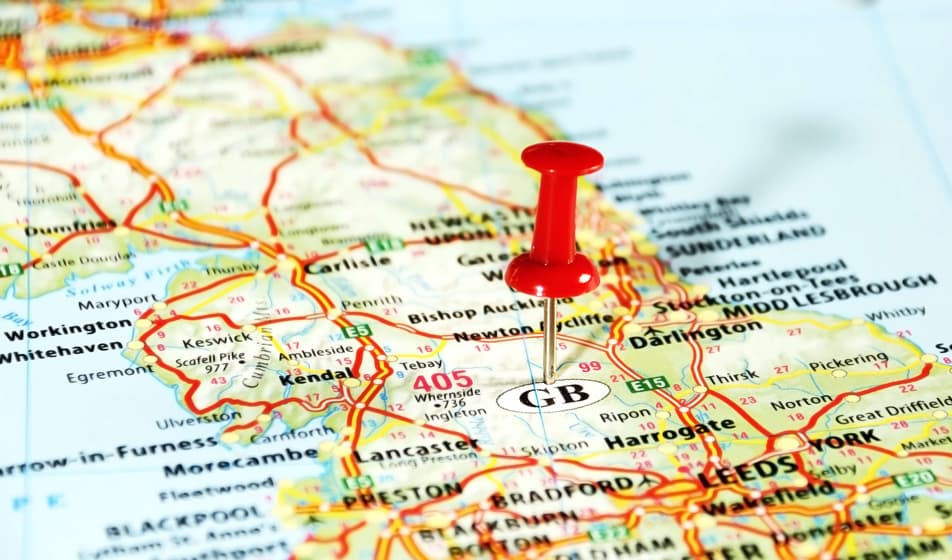Has your business embraced remote working, hot-desking and flexi-time? You're definitely in good company - as of 2022, 4.3 million employees had contracts that allowed for flexible working hours.
A flexible culture is great for morale, trust and job satisfaction - there's no doubt that having one is absolutely worth it.
But, amongst the hustle and bustle of modern-day working, it's important to keep in mind the huge importance of office location. Just because your staff aren't necessarily in the office 5 days a week nowadays (especially post-pandemic), it doesn't mean you should give your location less thought.
Get it wrong and you can say goodbye to business productivity and - ultimately - your bottom line.
And here's why.
6 ways office location affects business productivity
1. Logistics and supplies
One half of the productivity equation is input. So that's any raw materials of which you have regular deliveries.
For example, if you're running a restaurant, you'll be relying on regular ingredient deliveries in order to make sure you can continue to offer what's on the menu. On the other hand, though, if your business regularly ships goods to a wholesalers, seamless outbound logistics is essential.
Whatever your business does, its location could have a huge impact on productivity flow, even if you're not a particularly goods-heavy business.
When considering your office's location, one of your biggest priorities should be ensuring ease of access and adequate transportation routes, so that you're able to get goods to and from the site. If your business is based in a more rural area, it's most definitely going to increase travel time, slow down deliveries and waste money; and this is going to have a knock-on effect on sales and productivity.
2. Hiring talent
recruitment can vary dramatically.Just take a look at this ONS dataset, for example. The report found that salaries in London are highest, where the average gross weekly earnings of full-time employees (January-March 2023) is £904. The lowest average gross weekly wage (for the same time period) was in Wales, at £600.
Whilst it can be tempting to re-locate to somewhere where labour costs are lower, you need to balance costs with getting the best talent through the door.
Tech businesses, for example, benefit from being in a 'tech hub'. The top UK cities for tech innovation include London, Edinburgh, Manchester, Glasgow, Cambridge and Brighton. So, it would make total business sense to ensure your tech business is located within a stone's throw of one of these hotspots, in order to get the best talent on board.
And - costs aside - if you're looking to attract the best possible candidates, having an attractive location is critical. Things like local amenities, public transport access and parking will all contribute to being seen as an attractive place to work.
Getting the best staff onboard correlates directly with productivity. After all, they'll be producing the best work possible and maximising output.
This - along with maintaining a strong company culture and maximising employee engagement in order to retain your newly hired staff - is a sure recipe for success.
Save time and boost productivity - try Breathe for free today.

3. It'll affect your customers
How easy it is to access your business can impact your productivity.
If you're a local business, your closest customers could be your best ones. Relocate and you may regret it - customers aren't likely to make long trips unless you're providing unique must-haves that they can't get anywhere else.
If you're only trading online, it may not matter quite as much. But if customers need to get to you, you’ll need to ensure adequate accessibility, parking and the availability of nearby public transport.
4. Keep your competitors in mind
Again, this totally depends on the type of business you're running.
Some SMEs will benefit hugely from being close to competition as they'll have easy access to skilled candidates. It also makes good sense to be located near them if your business is more cost effective than theirs: you'll be in a good position to take the lead in the local market. And - naturally - if you and a competitor are within close proximity to each other, it'll creative a sense of competitiveness and motivation.
Sector clustering (such as technology hubs) benefit from talent pools and the growth of sector-specific suppliers who are more likely to set up in the same area.
5. Brand visibility and reputation
There's no doubt that choosing a high-profile location can increase brand visibility - it's natural that your business will gain more exposure from being in a high-traffic, busy area like a city. And this can be vital, especially if you're a start-up.
Keep your reputation in mind, too. Take London, for example. Opting to base your business in a central, prestigious and high-growth area is more than likely to change how your business is perceived by your customers and competition.
6. Costs
You don't need us to tell you that cash flow is critical. If you can't afford to pay your bills, how will your business survive, let alone maximise productivity and grow?
When contemplating business location, it's important to do thorough research into all of your options. You'll need to think about utility costs, tax, rent, insurance rates, and of course the deposit to secure the property.
And costs differ depending on where you're locating to. Research found that the average cost of renting office space in central Brighton in 2023 is £33.50-£37.50 per square foot - whereas London asks for a staggering £60-£120 per square foot.
It's all about balancing these costs with what's best for your business. Sometimes it makes sense to move to an expensive area if it gives you the exposure and recognition you need to grow.
Be careful though, do your research or you could be paying more than you first imagined and your cash flow could take a hit - along with productivity.

.webp)
Author: Sarah Benstead
Sarah is a Product Marketing Specialist here at Breathe. Always innovating, she loves writing about product releases in an engaging & informative way. When she's not coming up with new ideas, she enjoys long walks with her dog, Clifford.





